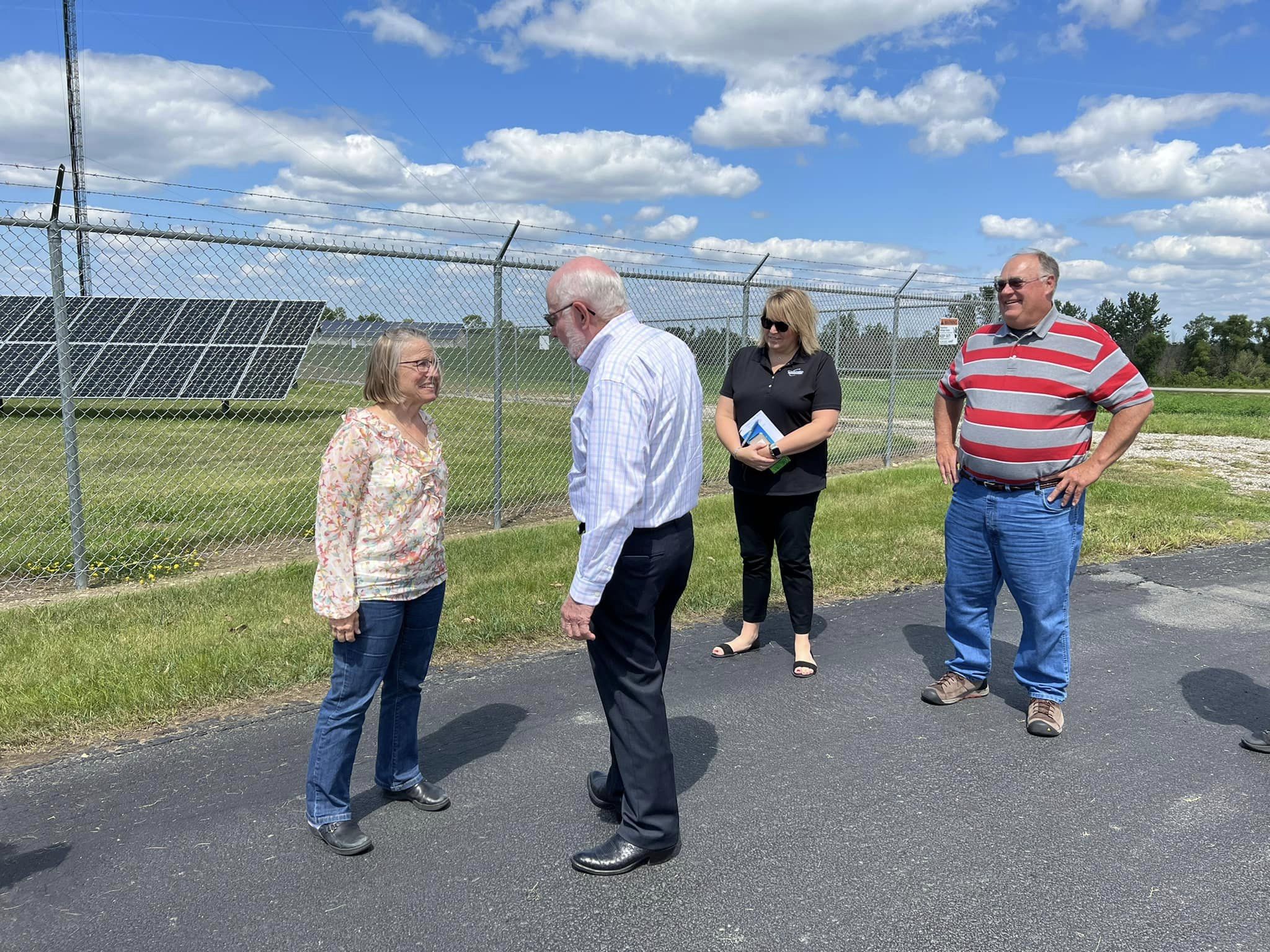U.S. Representative Mariannette Miller-Meeks (IA-01) is among eighteen House Republicans who asked Speaker Mike Johnson last week “to prioritize business and market certainty as you consider efforts that repeal or reform the Inflation Reduction Act.”
Miller-Meeks was the only Iowan in the U.S. House to sign an August 6 letter, first reported by Politico’s E&E News. Like others who signed, Miller-Meeks is on record twice opposing the energy tax credits: first, when she voted against the Inflation Reduction Act in August 2022, and next, when she voted for repealing many of that law’s provisions as part of a House Republican debt ceiling bill in April 2023. The language on tax credits wasn’t part of last year’s final deal to raise the debt ceiling.
Clean energy investments have skyrocketed in the two years since President Joe Biden signed the Inflation Reduction Act. But as Jamie Dupree reported in the August 8 edition of his Regular Order newsletter, House Republican leaders call incentives for projects including solar, wind, aviation fuel, hydrogen, and electric vehicles “Market Distorting Green Tax Credits.” That has raised concerns the credits could go away if Republicans control both chambers of Congress next year.
The August 6 letter warned,
Today, many U.S. companies are already using sector-wide energy tax credits – many of which have enjoyed bipartisan support historically – to make major investments in new U.S. energy infrastructure. We hear from industry and our constituents who fear the energy tax regime will once again be turned on its head due to Republican repeal efforts. Prematurely repealing energy tax credits, particularly those which were used to justify investments that already broke ground, would undermine private investments and stop development that is already ongoing. A full repeal would create a worst-case scenario where we would have spent billions of taxpayer dollars and received next to nothing in return.
The Republican co-signers also pointed out, “Energy tax credits have spurred innovation, incentivized investment, and created good jobs in many parts of the country – including many districts represented by members of our conference.” They endorsed “an all-of-the-above approach to energy development and tax credits that incentivize domestic production, innovation, and delivery from all sources.” Finally, they asked the House speaker to “consider us partners in reforming our tax policies in a way that puts America first while ensuring certainty for industry and the energy sector.”
Although eighteen members represent a small fraction of the current GOP conference, that could be a large enough contingent to defeat a bill in the next Congress, even if Republicans keep control of the House. Democrats will not vote for repealing the Inflation Reduction Act tax credits—especially since, as Dupree noted, doing so “would result in a $553 billion tax increase.”
Miller-Meeks has been outspoken about energy issues as a member of the Conservative Climate Caucus since 2021, the year Representative John Curtis of Utah formed the group. She became vice chair of the caucus in January 2023 and formally replaced Curtis (who is running for U.S. Senate) as caucus chair in April of this year. About 80 House Republicans have joined the caucus, but Miller-Meeks is the only Iowan among them.
In a virtual town hall organized by the group RepublicEn, recorded in early June, Miller-Meeks said she wants to grow the caucus and help the Republican Party improve its messaging on climate and energy. She argued that it is “critically important for us to be engaged” on those issues, and doing so would help the party maintain majorities.
Miller-Meeks said during the same town hall that the climate caucus was looking closely at the Inflation Reduction Act’s energy tax credits. She noted the 45Z provisions are “very important to agriculture,” but also said calling for an “all of the above” strategy (rather than subsidizing one industry) is a message that “works very well” with Republicans. Miller-Meeks suggested Republicans might agree to extend some of the Inflation Reduction Act tax credits in exchange for Democratic movement on permitting reform for electric grid and solar installations.
Top photo: U.S. Representative Mariannette Miller-Meeks visits the Consumers Energy Cooperative solar installation, one of Central Iowa Power Cooperative’s five sites, on August 22, 2022. Photo first published on Miller-Meeks’ official Facebook page.


2 Comments
Her real concern is clear
“…Miller-Meeks said she wants to grow the caucus and help the Republican Party improve its messaging on climate and energy.”
And there we go. Climate change can continue to grow and the impacts can become more and more horrible, as long as “messaging” helps keep Republicans in power.
PrairieFan Wed 14 Aug 5:09 PM
False solutions
The 45Z and 45 Q tax credits are a scam and false solutions to climate change. 45Z is a subsidy, as if another were needed, to the ethanol industry. 45Q is a subsidy to CO2 pipelines. Neither of these tax credits will be used to decarbonize the industries that spew out most of the greenhouse gases and will be the most difficult and expensive to decarbonize.
Wally Taylor Thu 15 Aug 11:22 AM